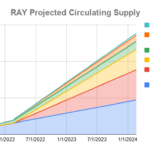As tariff tensions between the United States, and restrictions on capital movements at home lead to a change in strategy for Chinese companies, they are looking more and more towards Southeast Asia.
In 2025 the pivot will gain momentum, as more firms explore dual listing or asset-based offers in regional markets like Singapore, Thailand and Indonesia.
In a WSJ report, Jason Saw, head of CGS International’s investment banking group, a Singaporean unit of China Galaxy Securities said that interest in dual listing in Southeast Asia was quite real.
He said that momentum had increased this year after the “Liberation Day’ tariff announcements by President Trump in April.
Chinese companies traditionally have chosen to list their secondary shares in Hong Kong or the US.
Hong Kong remains a popular option. However, the tensions that exist between Beijing and Washington have led many companies to look at Southeast Asian financial centers, as they offer greater regulatory flexibility, geographic proximity and broader investor bases.
CGS: IPOs and secondary listings are in high demand.
CGS International advises on 8-10 significant transactions currently in Southeast Asia. These include initial public offerings (IPOs), secondary listings and share placements.
The majority of companies are located in Hong Kong or mainland China.
Last year, the firm was a major player in Helens International’s debut on Singapore Exchange, which is a China listed pub chain operator.
The report stated that Saw has two or three listings similar to this in Southeast Asia for 2025.
This is partly due to capital controls that are imposed on companies by the Chinese government, making it more difficult for them to transfer funds overseas.
Dual listing and asset-based offering are a way to raise money abroad, while still remaining compliant with local regulations.
CGS International is helping a Chinese company that produces food chemicals in Thailand to prepare for the listing of its assets at Thailand’s Stock Exchange.
Indonesia attracting Chinese entrepreneurs
In Indonesia, Chinese investors backed by private equity funds from the mainland have started local ventures, and they are looking to list on the Indonesia Stock Exchange.
Despite a difficult year for IPOs in ASEAN in 2024, when the volume of IPOs declined by 38% and in terms of value it fell by 21% according to EY, there is hope that 2025 will be a better year.
Analysts point to a decline in inflation, the expectation of interest rate reductions, and improved political stability, as reasons for a capital market rebound.
Southeast Asia is a popular destination because of its demographics and diplomatic appeal
Southeast Asia is also attractive to Chinese companies in sectors like retail, food service, technology and other competitive industries because of its increasing population and consumer spending power.
Warmer diplomatic relations between China and Southeast Asian countries are also contributing to this momentum.
In April 2016, Chinese President Xi Jinping signed several agreements aimed to strengthen cross-border investments.
While certain listing plans could be delayed due to geopolitical risk, it is anticipated that the trend for Chinese companies to look southwards to raise funds will continue.
Saw explained that it’s normal for businesses to pause. We believe Southeast Asia is a major diversification option for firms as they navigate through geopolitical challenges.
The Daily Hodl published the article Chinese firms look for Southeast Asia listings in spite of tariff tensions.
This site is for entertainment only. Click here to read more






